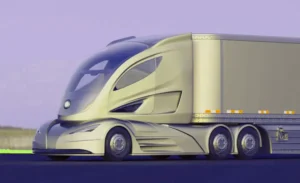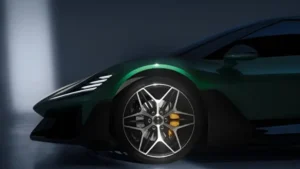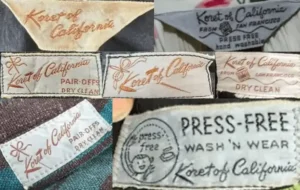A Look at California’s Most Promising EV Innovators
California has always been a laboratory of the future — from Silicon Valley’s tech dreams to the highways where Tesla’s first prototypes came to life. Today, the state is once again on the frontlines of innovation, as dozens of startups race to prove that the world of electric vehicles doesn’t revolve around Elon Musk alone.
Tesla remains the symbol of electric revolution, but the era of tech monopolies is fading. A new generation of automakers is bringing bold ideas to the road — lightweight city EVs, solar-powered trucks, and aerodynamic coupes that look more like aircraft than cars. Increasingly, these startups aren’t just chasing Tesla — they’re building their own niches and their own philosophies.
The Post-Tesla Era: What’s Changed
In the 2010s, Tesla made the impossible possible — it turned the electric car from a curiosity into an object of desire. But by 2025, the market had evolved. No one questions the future of electric mobility anymore. The question now is different: who will make EVs smarter, cheaper, more autonomous, and more sustainable for the planet?
California startups — from Silicon Valley to the southern coast — are answering that question. They’re merging energy-efficient technology, solar generation, artificial intelligence, and daring design. Their mission isn’t just innovation — it’s reinvention.
Aptera: The Car That Runs on Sunshine
One of the most talked-about projects is Aptera Motors, based in San Diego. It’s not just an electric vehicle — it’s more like a solar airplane on wheels.
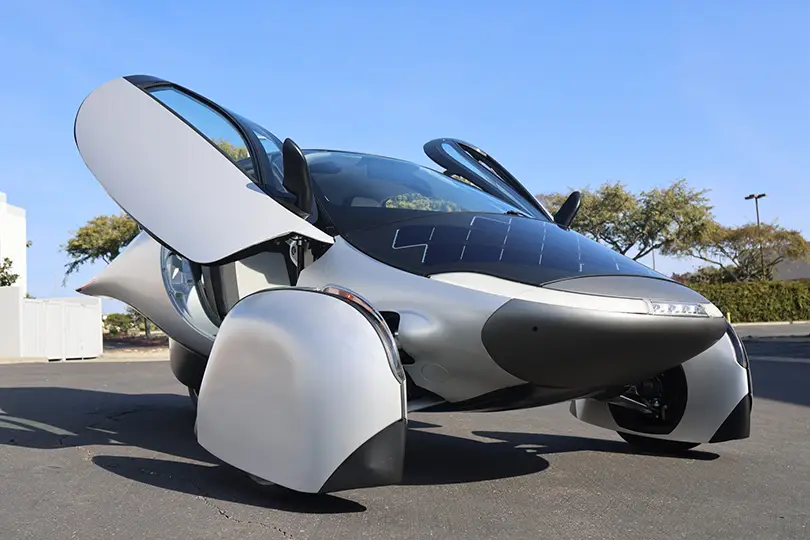
Aptera is a three-wheeled coupe shaped like a teardrop, capable of driving up to 1,000 miles (1,600 km) on a single charge. Solar panels on its roof can add up to 40 miles (60 km) of range per day without plugging in.
The creators call it “the car you never need to charge.” It sounds bold — almost sci-fi. But that’s exactly the kind of vision that makes the future feel possible.
Telo: The Mini Truck From the Future
In Berkeley, the startup Telo Trucks, founded by former Tesla and Rivian engineers, is rethinking what a pickup can be — compact, clean, and city-friendly.
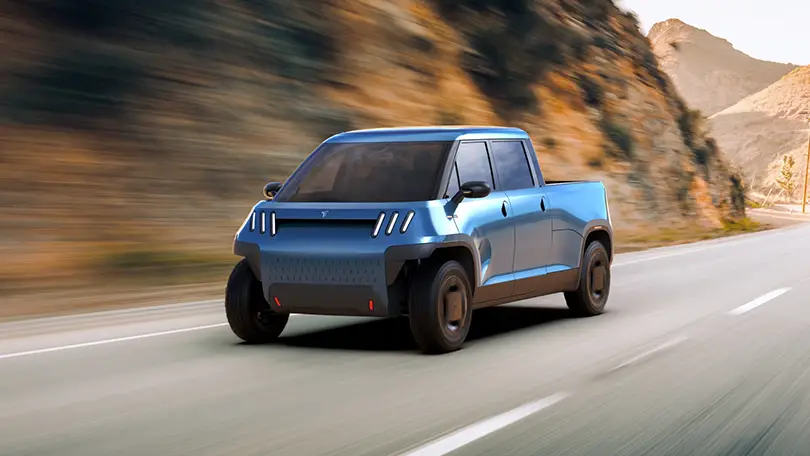
Their first model, the Telo MT1, is just 12.5 feet (3.8 meters) long — the size of a Mini Cooper — yet it offers the bed and payload of a full-sized pickup. It boasts up to 300 miles (480 km) of range, a 20-minute fast charge, and even functions as a mobile power generator.
Telo proves that “green” doesn’t have to mean “fragile.” The company isn’t trying to dominate the world — just to bring the pickup back to the city, without exhaust fumes, noise, or carbon footprints.
EdisonFuture: Solar-Powered Trucks and Vans
Los Angeles–based EdisonFuture is betting on the commercial market. Its EF1-V vans and EF1-T pickups are built for logistics, delivery, and municipal services.
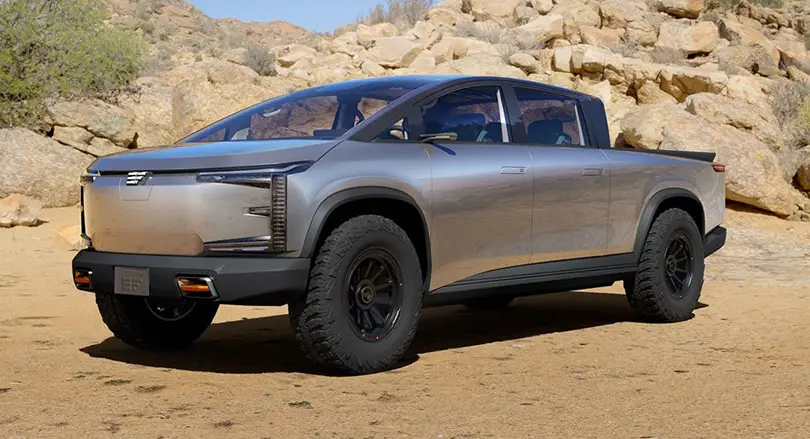
Their standout feature is a roof embedded with solar panels — not enough to replace a charge, but enough to extend range and reduce dependence on charging stations. The company promises up to 450 miles (720 km) of range, and interiors that feel like a spaceship cockpit — complete with panoramic displays and digital controls.
For California’s small businesses, these vehicles could be a real game-changer.
Lucid Motors: Elegance, Range, and Technology
If Tesla is the “iPhone” of the EV world, Lucid Motors, based in Newark, is positioning itself as the “MacBook Pro on wheels.”
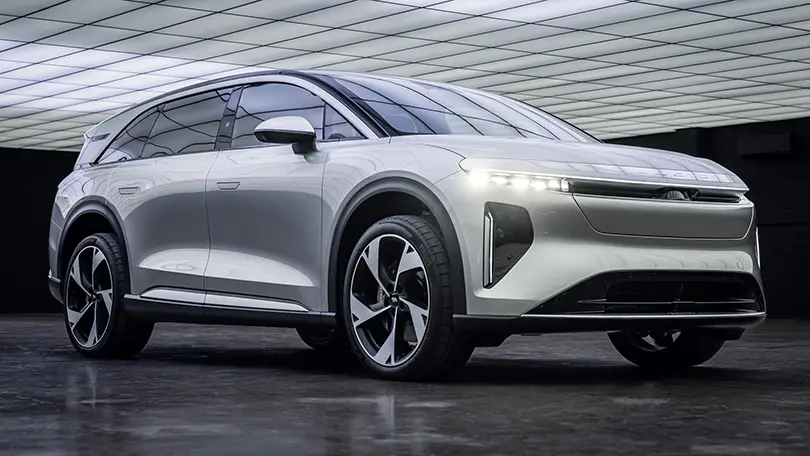
Its flagship model, the Lucid Air, is an engineering marvel: 520 miles (830 km) of range, up to 1,200 horsepower, and 0–60 mph in under two seconds. Inside, a luxurious, minimalist cabin blends craftsmanship with cutting-edge tech.
Lucid’s focus is efficiency and elegance — competing not only with Tesla, but also with Mercedes and Porsche.
Canoo: Flexibility and Modularity
Torrance-based Canoo has introduced a radical idea — an electric car as a mobile platform.
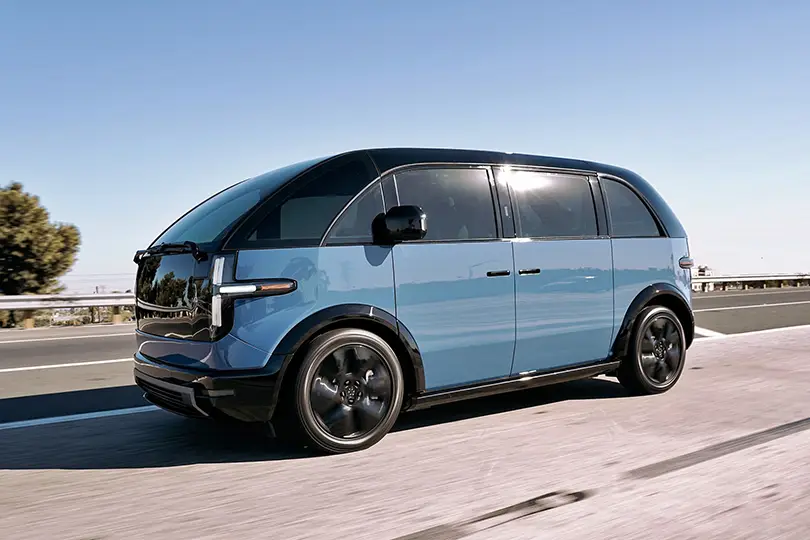
Its futuristic vans and pickups can be reconfigured for everything from delivery to camping. A flat battery and compact electric motors free up interior space, redefining how vehicles are used.
Canoo has already signed a contract with NASA to supply electric transport vans for space missions — a milestone that underscores its innovation.
Fisker: Design, Sustainability, and a Second Chance
The name Henrik Fisker is well-known. His first attempt to take on Tesla in the 2010s failed, but now he’s back — and more determined than ever.
The new Fisker Ocean is an electric SUV with up to 350 miles (560 km) of range, a cabin made from recycled materials, and a solar roof. Starting under $40,000, it’s a direct competitor to the Model Y — with a greener twist.
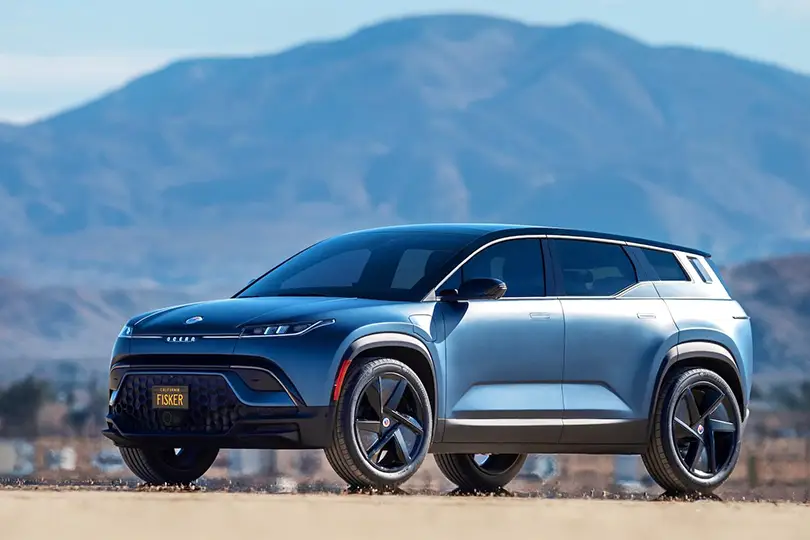
Fisker’s mission is clear: sustainable production, minimal emissions, and ethical sourcing — a car built for both people and the planet.
Phoenix Motorcars: Electrifying the Commercial World
Among the quieter players is Phoenix Motorcars, based in Anaheim. The company produces electric buses, shuttles, and trucks for commercial clients.
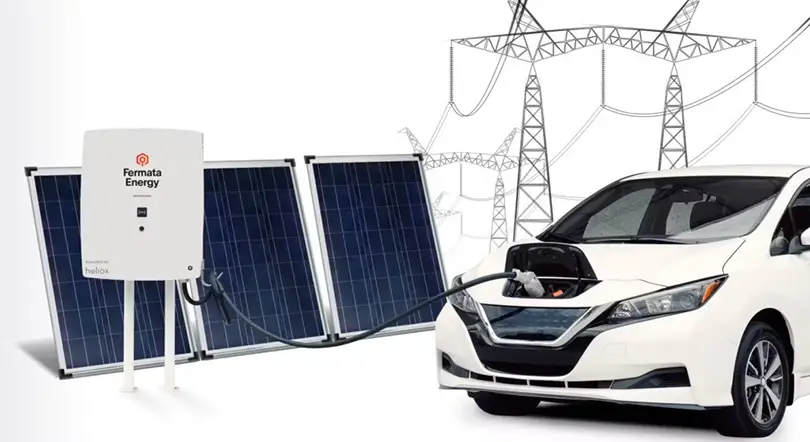
Phoenix doesn’t chase headlines. Instead, it focuses on infrastructure — schools, airports, and local fleets. Its priority is reliability and local manufacturing, proving that EVs can be more than luxury gadgets — they can be the backbone of everyday logistics.
Rivian: Adventure Goes Electric
Rivian Automotive is one of the few startups truly competing with Tesla in both sales and public attention.
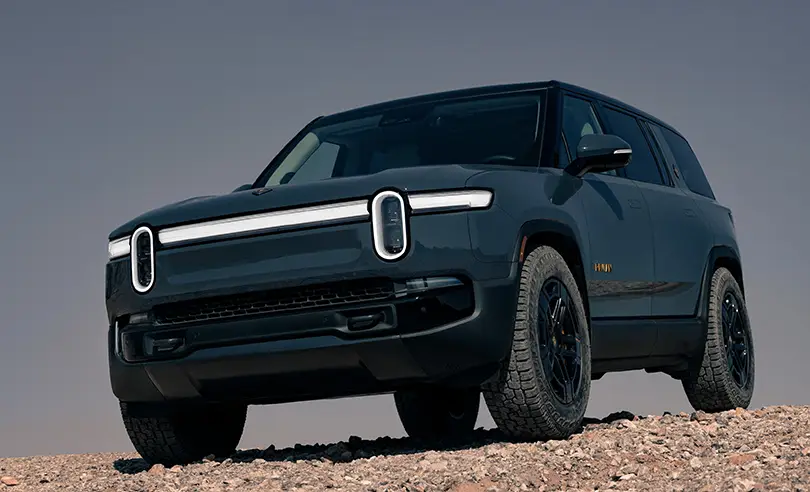
Its R1T pickup and R1S SUV are designed for adventurers — people who camp, climb, and explore. Rivian sells not just cars, but a lifestyle: “electric freedom.”
The company also partners with Amazon to supply electric delivery vans and is building a nationwide charging network — extending the EV frontier far beyond city limits.
The Big Picture: Smart, Green, and Autonomous
The defining trend among California’s new automakers is intelligent sustainability. The EV of the future won’t just be a vehicle — it’ll be a personal ecosystem on wheels.
Cars will learn from their drivers, optimize energy use, adapt to habits, and even share power with other vehicles. Some prototypes already use AI to choose routes based on sunlight, wind, and charging availability — a fusion of ecology and intelligence.
Why California Leads the Race
- Infrastructure.
The state boasts one of the world’s densest networks of charging stations, labs, and innovation accelerators. - Government Support.
California offers strong incentives for clean energy adoption, reducing taxes and funding green startups. - Mindset.
Californians value design, sustainability, and technology — forming the world’s most progressive car culture.
What’s Next for the Market
Analysts predict that by 2030, over 70% of new vehicles sold in California will be electric. That means the next five years will define who shapes the industry — Tesla, or the new wave of innovators.
These startups may not have Tesla’s scale, but they have something just as powerful: speed. They’re agile, experimental, and unafraid to take risks.
The Future: Battery-Powered — or Solar-Powered?
When Tesla began, few believed an electric car could be sleek and fast. Today, no one doubts it. The next frontier is clear: make EVs smart, autonomous, and fully sustainable.
And once again, California just might be the place where the car that changes everything is born — all over again.

